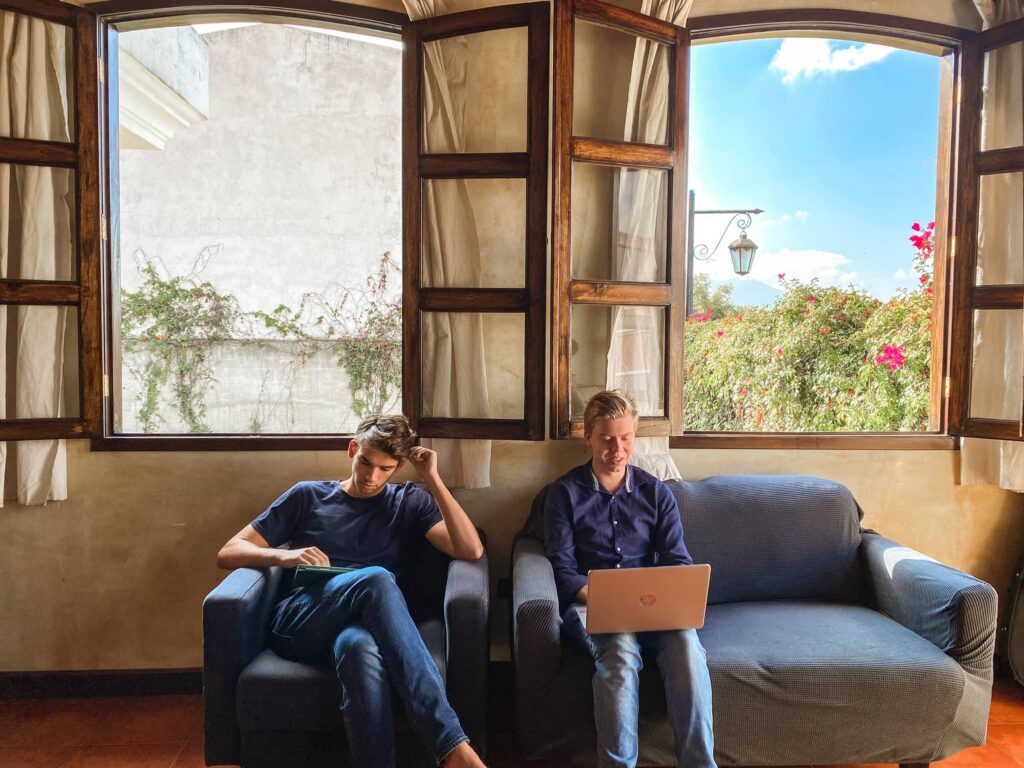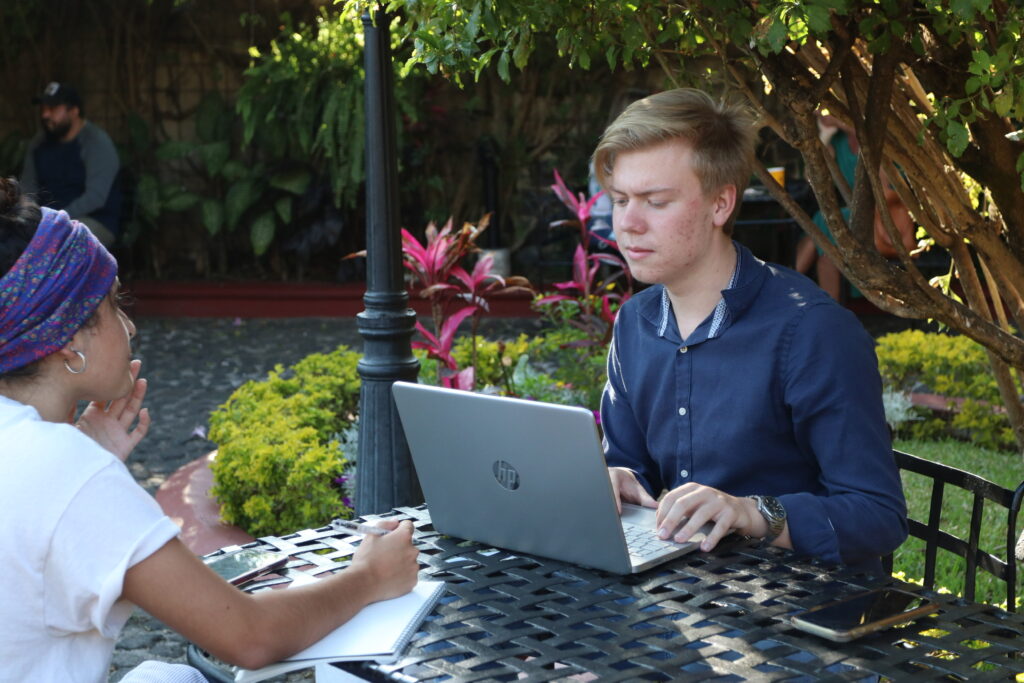
How to Support Your Missionary Work for Global Missions With Freelance and Remote Work

What is the difference between freelance work, a service-based business, and landing a remote job? It can be confusing – especially when some words are used interchangeably. But get ready because we are about to dive into the CORE difference between them so you can determine which is best for your missionary work goals and global missions.
Freelance vs. Serviced Based Business vs. Remote jobs: What’s the difference?
In terms of marketing:
- A freelancer’s marketing strategy may look like something this, “I help a lot of people do a lot of different things.”
- While on the other hand, a business owner would say, “I help a SPECIFIC type of person/business accomplish a SPECIFIC goal/transformation.
- A remote employee would follow whatever marketing strategy/plan the company has implemented.
Let’s talk money:
- A freelancer generally sells hours, and their income is dependent on how many hours they have worked that month. Many freelancers charge either hourly or with a monthly retainer (a set amount of hours each month at a specific cost that is usually paid upfront). Some typical freelance jobs would be Virtual Assistant, Online Business Manager, Project Management, etc.
- Service-based business owners sell a specific service (no a la carte options) that is based on deliverables and ongoing support. Pricing is determined based on the VALUE of the service and not the time spent to deliver the service. Think of web design, graphic design, Podcast management, etc.
- A remote employee is paid either salary or hourly, and they are required to work a specific number of hours with little flexibility. Their ability to increase their income is pretty limited and capped by the company.
How do they work?
- A freelancer is generally the only person working in their business, working directly with the clients.
- A serviced-based business owner may work as a solopreneur or create a team of freelancers to help them with projects and deliverables (think of a web designer who hires a virtual assistant to help them with repetitive tasks).
- Depending on their position, a remote employee will work alone, directly with customers, or on a team.

How can working remotely support your missionary work?
So how can starting either of these three business types help you support your missionary work and global missions goals?
For one, you won’t have to be dependent on raising support. If you have or know anyone who has embarked on the support-raising journey to fund missionary work, then you know it requires a lot of time and effort to raise funds to sustain the support for long-term missionary work.
The same effort could be used towards starting a business – whether that be freelance or service-based.
You’re probably thinking, “Sure, that sounds great, but it’s probably too good to be true or too much effort. I have no skills or experience in starting a business or providing services.”
There was a time when we at Virtual Tentmakers felt the same. Working remotely seemed like an impossible code to crack; we didn’t know how to get started.
So how did we “crack the code” to working remotely from the mission field and sustaining our missionary work through our online businesses?
We educated ourselves through online courses, through people who have gone before and are living the same lifestyle we want to live, and through following the advice of other freelancers and serviced-based business owners.
There is no shortage of online work; all it takes is learning the skills that business owners are hiring for, understanding the strategy to get your business up and going, and then the most challenging part – actually starting.

How can Global missions incorporate remote work into missionary work?
So how do Christian missionaries balance remote work with missionary work? What do the hours look like, and how can a Christian missionary balance both?
As a freelancer or service-based business owner, you set your hours. You determine your work schedule based on your lifestyle.
Some freelancers set specific “work hours” where their clients can always reach them. And for some service-based business owners, they give a deadline by which the client can expect the project to be completed.
Another question that comes up a lot regarding freelancing and starting a service-based business is finances: Doesn’t freelance = low pay?
The answer to that question depends solely on you and what you charge.
Many virtual assistants set their beginning rates at $25/hour.
Online business managers and project managers charge a minimum of $40/hour.
Web designers charge between $750-$5000 for a single website – and getting to that $5000 a website rate is not years down the road; many web designers say that within 1-3 years, that’s what they charge on average.
Online business owners and coaches can create programs and online courses around their specific skillset.
There is no income ceiling for freelance and service-based business owners, and there are no set work hours that you have to be at your desk.
You have the flexibility to schedule your day around mission work – whether you want to work in the more and share the gospel in the afternoon or vice versa.

The Virtual Tentmaking Model: Opening the doors for self-sustained missionary work and global missions
Virtual Tentmakers is modeled after the example the Apostle Paul set with his tentmaking business. Though Paul could have received monetary support from the church, he chose instead to self-fund his missionary work by working and making tents in the various cities he lived.
Our hope and goal are to equip believers with a heart for the mission field with remote job skills so they can self-fund their life while making a lasting impact among the people groups they serve.
We do this through our free resources and community as well as our self-paced online course, The Virtual Tentmakers Course. In the course, we teach the most in-demand skills needed to launch your freelance or service-based business and find clients immediately.
The course is self-paced, but with a bit of dedication and time set aside, it can be completed in less than 90 days, and a student could be well on their way to landing clients.
Some missionaries may choose to do a combination of support raising and freelance/service-based business work. Whichever model a missionary may feel called to, we are here to help support the mission of reaching people with the gospel message of Jesus Christ.
Become an action-taker today and sign up for our FREE class: Intro to Tentmaking and learn how you can support your missionary work through freelance and remote work.

